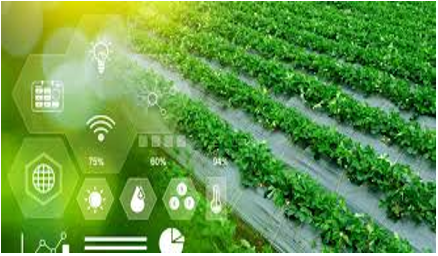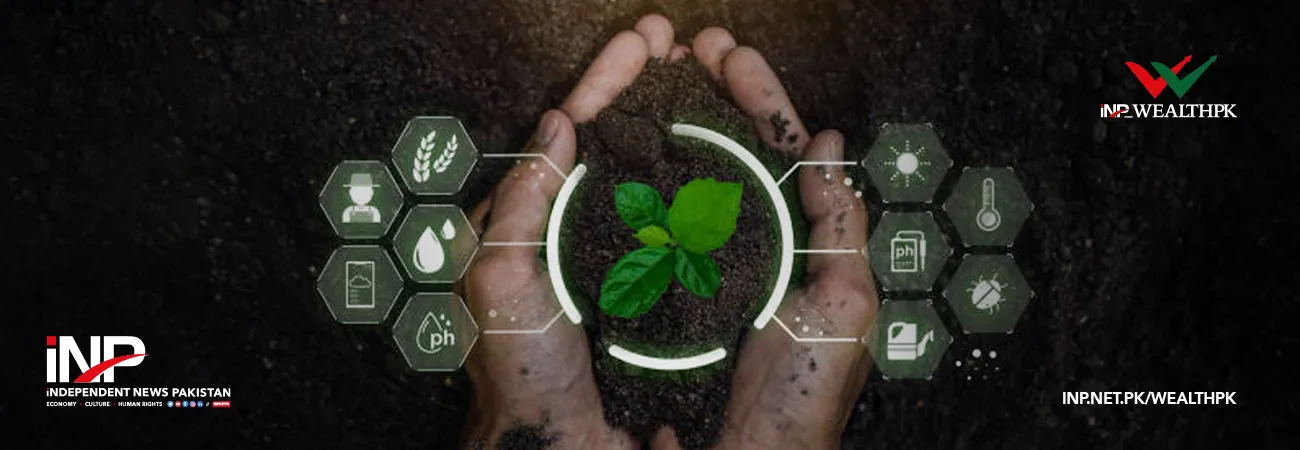INP-WealthPk
Muhammad Luqman
Climate change poses a serious threat to food security in Pakistan, underscoring the need to adopt climate-smart techniques to boost agricultural output, reports WealthPK.

With a predominantly agrarian economy — where agriculture contributes 23% to the GDP and employs over 38% of the labor force — Pakistan faces declining crop yields, increased water stress, erratic weather patterns, and frequent natural disasters. In this scenario, climate-smart agriculture (CSA) emerges as a vital approach to ensure sustainable agricultural development, food security, and rural livelihoods.
“This mode of agriculture helps attain sustainably increasing agricultural productivity by adapting and building resilience to climate change,” said Shoaib Ahmad, a Lahore-based CSA expert. Talking to WealthPK, he said CSA techniques are also helpful in enhancing the farming sector’s resilience to extreme weathers like abnormal increase or decrease in temperature, untimely rains and flash floods.
He said adoption of efficient irrigation systems like drip or sprinkler irrigation can be instrumental in conserving water especially at a time when the per capita water availability has dwindled to less than 1000 cubic meters per annum from an enviable level of 5000 cubic meters over the last few decades. “We have to change the farming practices too by adopting agroforestry and intercropping with an objective to stabilize the soil and reduce heat and moisture stress,” said Shoaib Ahmad, who is former chairman of CropLife Association.
He said the research and development institutions, both in public and private sectors, should focus on developing heat-tolerant and drought-resistant crops. Shoaib Ahmad also advocated crop diversification by growing pulses, oilseeds, and high-value horticulture to help reduce dependency on a single crop affected by climate shocks. He said government incentives and subsidies for climate-resilient practices were much needed, as the farmers had very scarce money to invest in technologies required to practice conservation and climate-smart techniques.
“Farmers’ training and capacity-building on new methods and technologies should be carried out on a regular basis,” Shoaib said. He also recommended the use of drones for precise application of pesticides and fertilizers on crops. According to climatologists, extreme weathers have changed the time windows for cultivation and harvesting of crops, thus leading to poor produce. “The early water evaporation phenomenon is very common in Sindh, Balochistan and Southern Punjab during summers, making proper irrigation of crops difficult,” Mian Muhammad Ajmal Shad, a Lahore-based climatologist said.
During winters, he said, the frequency and quantity of rains has decreased drastically, badly affecting Rabi crops like wheat. “India’s recent decision to suspend the Indus Water Treaty has just added worst to the already difficult situation,” Ajmal Shad told WealthPK. He said water conservation techniques like drip irrigation and sprinkling could provide solace to the farmers.
“There should be schemes for promotion of small and micro dams to ensure rain harvesting during the monsoon season so that the crops were saved from the ill-effect of water shortage. Smart agriculture technique of determining soil moisture can help in irrigation at only right times,” Ajmal Shad said. The experts believe that CSA offers Pakistan a pathway to address the dual challenge of ensuring food security and combating the adverse impacts of climate change.
Credit: INP-WealthPk













